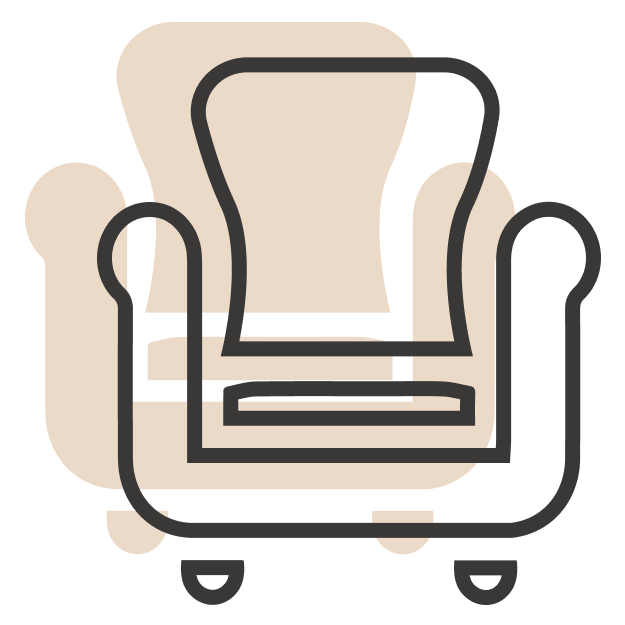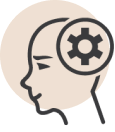Digital Gestalt: Online Gestalt Therapy and Features of Group and Individual Work
Interactive professional development course Goal: To transfer the dynamic, relational, somatic, and experiential aspects of Gestalt therapy into the context of online practice.
Join the course
- Start date: 14.03.2024
- Format: Interactive Online
- Language: English, Russian (simultaneous interpretation )
- Graduation document: certificate
- Format: 6 sessions of 4 hours each
- Number of Participants: Unlimited
Participation fee:
1 meeting- 100 euro.
Whole course - 540 euro (10% discount).
Teaching methods
In this international, interactive, live online class format, you will learn the skill set needed to bring the dynamic, relational, embodied and experimental essence of Gestalt to your online practice.
These are not passive webinars, live participation is required as we will be modeling at all times the ideas we hope to teach through this course. Though facilitators will hold both content and process responsibly, this is facilitated knowledge sharing (NOT primarily lecturing) and includes space for emergent themes and group member contributions to co-learning
The courses include supervised experiential experiments in group and individual Gestalt therapy process, and intervision to process work with external online clients
Course topics:
- Gestalt principles in the digital world: ethics and aesthetics of presence, embodiment, and interaction.
- Individual therapy– relational dialogue and creative experimentation
- Online Gestalt groups
- Technical and technological elements that facilitate therapeutic work.
- In-depth practical training and personal project development.
The course includes:
- support for publications and informational materials
- 4 group training sessions
- 3 practical classes supervised by colleagues with structured practical experiments
- discussion forum
Participants will be able to:
strengthen their abilities for exciting, physical, relational and creative work in an online format
develop a specific set of skills to apply the principles of gestalt therapy in online work
live their own process through online group and individual sessions, applying the knowledge gained and receiving feedback
get a clear understanding of the ethical and legal obligations and responsibilities associated with online customer service
develop competitive, applied projects for themselves using the acquired skills
Requirements for participants:
Graduates of Gestalt therapy training programs or current already practicing participants of the program.
Technical requirements:
- activate audio and video during each session;
- have a place where they can move freely;
- have speakers, a microphone and, if possible, a hands-free headset;
- it is required that participants use a PC (not a smartphone or tablet).
Speakers' Bios:
David Picó Villa. Spain
(David Picó Vila)
His early training, before studying psychology and gestalt therapy, was as a musician and as a computer scientist. His doctoral thesis in computer science was in the field of artificial intelligence and human language. As a musician (pianist and singer) he has always been very interested in the difficulties of expression and how the body of the musician, and of any person, responds to his emotional state. For these and other reasons, he began to learn about different therapies. Gestalt Therapy interests him for its theoretical rigor, and for its emphasis on creativity and spontaneity, necessary for the artist and for any other person. He also has a degree in Psychology, a PhD in Computer Science, and training in Gestalt Psychotherapy from the French Institute of Gestalt Therapy (IFGT) and former Vice-President of EAGT.

Heather Anne Keyes
(Heather Anne Keyes)
Canadian-Mexican Gestalt Psychotherapist with 15 years of experience working in private online practice internationally. She works with individuals and groups, is the founder and President of the AMPG (Asociación Mexicana de Psicoterapia Gestalt Contemporanea), founder and coordinator of the Humans of Gestalt project and OpenGestalt.org, and has served as an academic advisor, program coordinator, faculty, guest faculty and consultant in numerous Gestalt training programs around the world. Her writing has been published in the BGJ and in Gestalt Review. She is passionately curious about issues of social justice, human rights, critical thinking, humor, decolonization, and neurodiversity and enjoys food. She has coordinated and served as a bilingual interpreter for more than 15 international gestalt conferences and is a strong advocate for lifelong learning, community, and mutual support for psychotherapists.

Overview:
Introduction – before the 1st session - watch the recording of the online seminar "How to do Gestalt therapy online" by David Pico.
1) Module 1 - March 14
- Experiment: Principles of Gestalt therapy in the digital world
- Legal and ethical issues in online practice
2) Module 2 - April 11
- Individual therapy– relational dialogue and creative experimentation
- Ethics and esthetics of presence, embodiment and contact.
3) Module 3 - May 2
- Seeing and being seen: the phenomenology of relation
- Finding and using your voice in psychotherapy
4) Module 4 - yet to be scheduled
- Intervision for online clients
- Humor and creative expression in therapy
5) Module 5 - yet to be scheduled
- Online Gestalt groups
- Practice, experimentation
6) Module 6 - yet to be scheduled
- Unfinished business: Grief, loss and loneliness
- Final empirical
The format:
- Day of the week: Thursday 16:00-20:00 СЕT

Strengthen their abilities for engaging, somatic, relational, and creative work in an online format.

Develop a specific set of skills for applying Gestalt therapy principles in online work.

Create competitive, practical projects using the acquired skills.

Experience their own process through online group and individual sessions, applying the knowledge and receiving feedback.

Gain a clear understanding of the ethical and legal obligations and responsibilities associated with online work with clients.